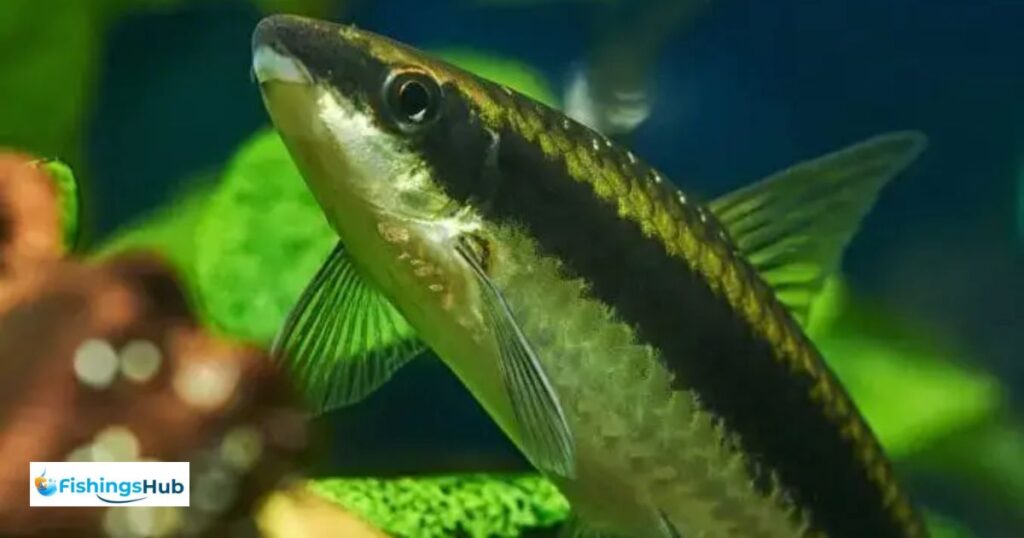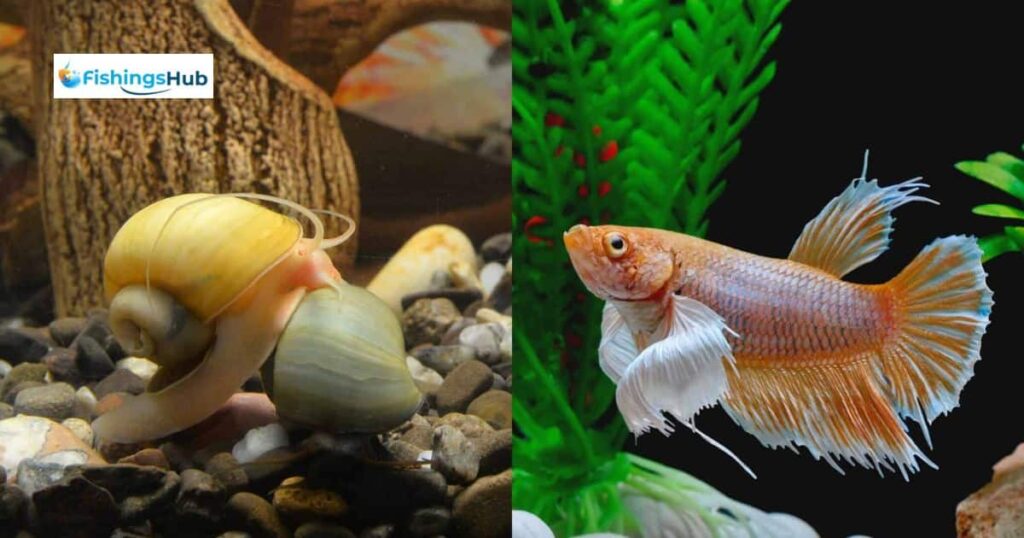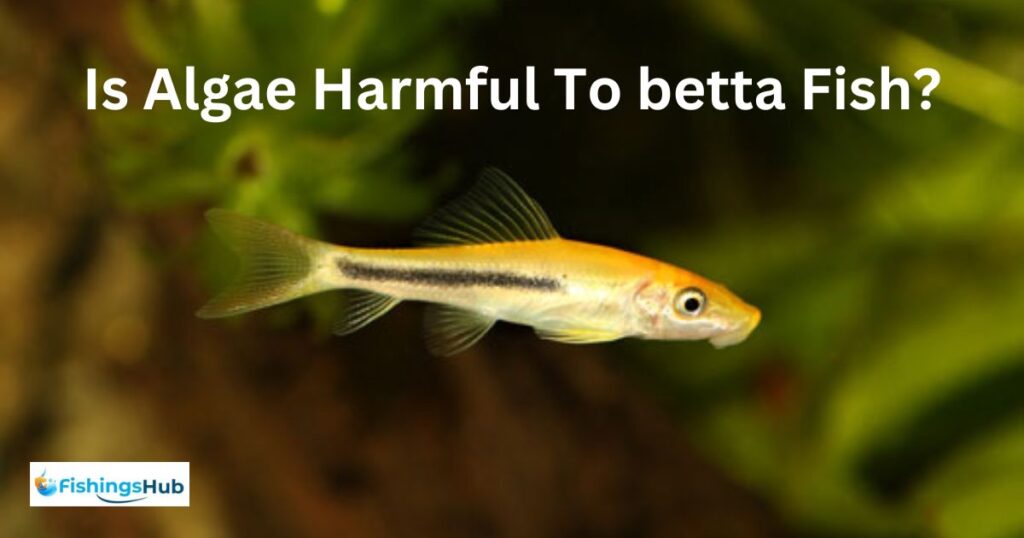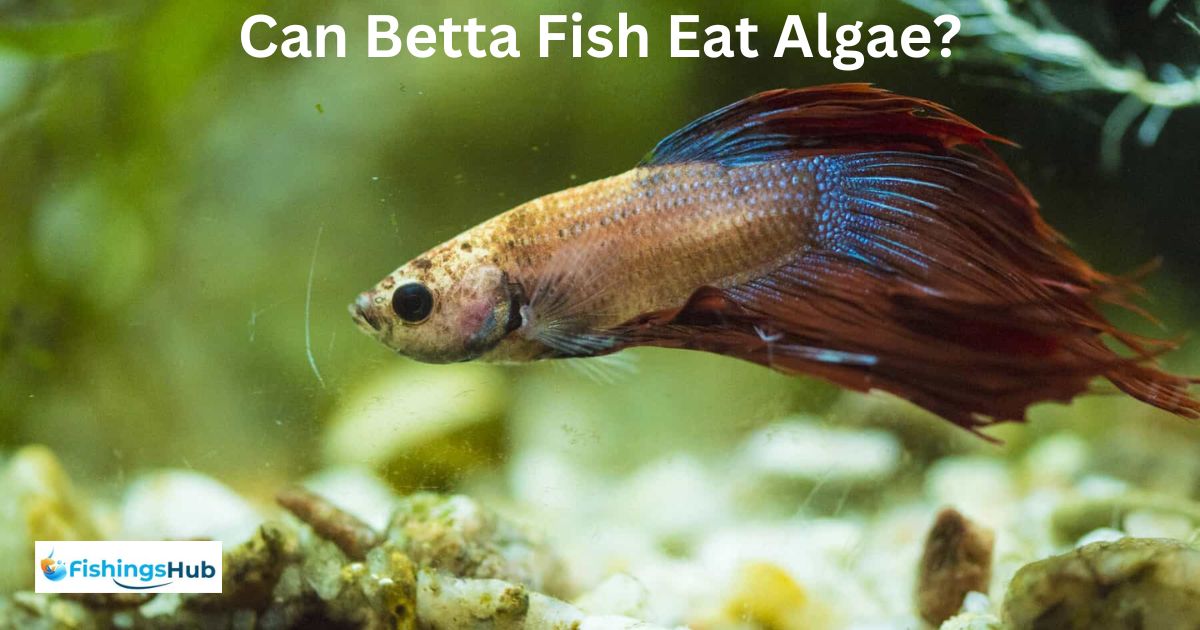Betta fish, also known as Siamese fighting fish, are vibrant creatures loved by many aquarists. They’re native to freshwater habitats in Southeast Asia. As omnivores, they enjoy a varied diet. A common question arises: can these colorful fish dine on algae? Let’s delve into this query and uncover the facts.
Picture your betta fish in a clear tank with pretty green plants. What if those plants were not just for looks but also a yummy snack? Let’s find out if bettas can eat algae and why it could be good for them.
Betta fish are known for their bright colors and lively nature. To stay healthy, they need the right food. They usually eat pellets and small live things. Sometimes, they might like to eat algae found in tanks. But is it good for them? Let’s find out more about what bettas eat and if they can have algae.
Can Bettas Really Eat Algae?

The straightforward answer is yes, betta fish can eat algae. In their natural habitats, bettas often nibble on algae-covered surfaces as part of their varied diet. However, it’s essential to clarify that while algae can be a component of their diet, it shouldn’t be their sole or primary food source. Bettas require a balanced diet to meet their specific nutritional needs, ensuring their health and vitality.
Benefits Of Algae For Bettas
Including algae in a betta’s diet can offer several benefits:
- Nutritional Value: Algae are rich in essential nutrients, vitamins, and minerals beneficial for betta fish. Consuming algae can contribute to their overall health and well-being.
- Digestive Aid: Grazing on algae can aid in digestion for bettas, promoting a healthy digestive system.
- Natural Foraging Behavior: Allowing bettas to graze on algae mimics their natural foraging behavior, providing enrichment and mental stimulation.
Types Of Algae Safe For Bettas
Not all algae are suitable for bettas. Some types can be harmful or toxic. Here are some algae types generally considered safe for bettas:
- Green Algae: Commonly found in aquariums, green algae are generally safe for bettas in moderation.
- Brown Algae (Diatoms): While not as nutritious as other algae types, brown algae can be consumed by bettas and are considered safe.
It’s crucial to ensure that the algae present in the aquarium are free from contaminants and regularly monitor the tank’s condition to maintain a safe environment for your betta.
Precautions And Considerations

While algae can be a beneficial addition to a betta’s diet, several precautions and considerations are essential:
- Variety in Diet: Ensure that algae is part of a varied diet for your betta, complemented by quality betta pellets and occasional live foods.
- Tank Maintenance: Regularly clean and maintain the aquarium to prevent the overgrowth of harmful algae and ensure a healthy environment for your betta.
- Monitoring: Keep a close eye on your betta’s behavior and health. If you notice any signs of distress or illness, consult with a veterinarian familiar with aquatic species.
Can Betta Fish Eat Algae In Water?
Betta fish naturally encounter algae in their freshwater habitats. In these natural settings, they may nibble on algae-covered surfaces as part of their varied diet. However, it’s essential to provide them with a balanced diet, ensuring that algae is not their sole food source.
Can Betta Fish Eat Algae In A Tank?
Yes, betta fish can consume algae present in their aquariums. Algae can offer nutritional benefits and mimic their natural foraging behavior. It’s crucial to ensure that the algae in the tank are safe and free from contaminants. Regular tank maintenance and monitoring are essential to create a healthy environment for your betta.
Is Algae Harmful To betta Fish?

Algae itself is not inherently harmful to betta fish. In fact, some types of algae can provide nutritional benefits when consumed in moderation. However, excessive algae growth in a betta tank can lead to various issues. If the tank becomes overrun with algae, it can create an unbalanced environment.
Excessive algae growth may deplete oxygen levels in the water, potentially stressing or harming the betta. Additionally, thick algae can impede the betta’s movement and hinder their access to food. Furthermore, certain types of algae may release toxins or contribute to poor water quality if they overgrow. This can adversely affect the overall health and well-being of betta fish.
Therefore, while small amounts of algae can be beneficial and natural for betta fish, it’s essential to control algae growth in the tank through regular maintenance and monitoring to ensure a healthy environment for your betta.
FAQ’s
Why is my betta fish eating algae?
Fish naturally eat algae while looking for food. If they only get pellets once or twice a day, they have lots of time to snack on other things they come across.
Is it OK for fish to eat algae?
Some fish and invertebrates enjoy munching on algae, considering it a yummy treat. If your tank has algae, its residents will probably enjoy nibbling on it. This is great because algae naturally contains carotene, a vital vitamin that helps make vitamin A.
Is green water bad for betta fish?
They usually don’t harm your fish, other aquarium creatures, or even you. However, they can look unpleasant, and in extreme situations, they might block light from reaching plants.
Do guppies eat algae?
Guppies often munch on algae, including the stringy kind. But just eating algae alone might not give them everything they need to stay healthy for a long time. It’s good to give them different foods too, so they get all the right nutrients they need to be happy and well.
Does overfeeding fish cause algae?
Too much algae is a big issue in fish tanks. The main reason is giving the fish too much food. When there’s too many leftovers and waste in the water, it causes colorful algae like blue-green and red to grow a lot. This happens a lot when fish get fed more than they need.
Final Thoughts
Can Betta Fish Eat Algae? To sum it up, while betta fish can eat algae and it’s good for them, too much can be bad. It can make the water dirty and hard for bettas to move and eat. Just like people, bettas need a mix of foods to stay strong. While algae is okay sometimes, they still need their main foods for all the right vitamins.
Also, it’s important to keep the tank clean and watch how your betta acts and feels. A healthy betta is one that eats well, stays safe, and lives in a tidy tank.

